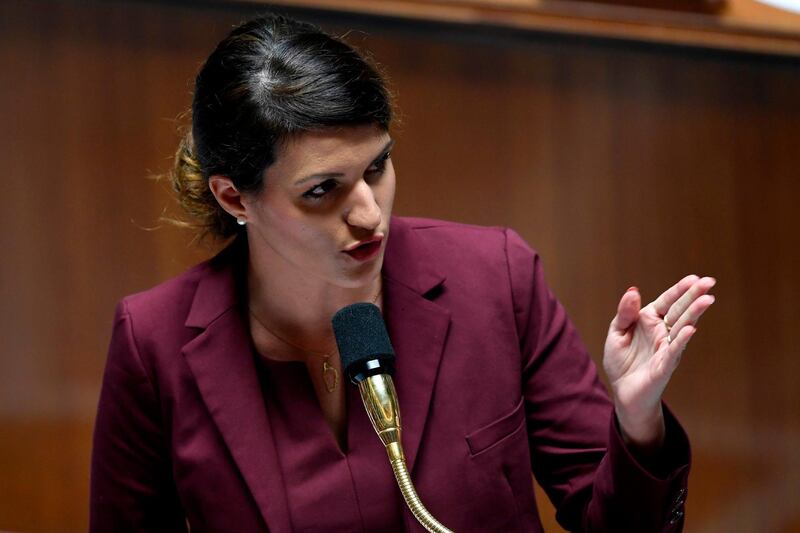French president Emmanuel Macron will launch a ‘cultural war’ against sexism and sexual violence in a speech on Saturday, addressing an issue that has dominated news coverage after allegations of sex crimes by such people as US movie producer Harvey Weinstein encouraged women in America, France, and around the world to come forward with tales of abuse they’ve suffered in fields ranging from entertainment to sports to politics.
Mr Macron has tasked Marlene Schiappa, his 35-year-old state secretary for gender equality who is not even a full minister, to show the presidents’s commitment to women’s issues. Ms Schiappa was among four members of the government picked to speak when President Emmanuel Macron’s political movement held its first congress last weekend.
Mr Macron “has made equality of the sexes a major objective of his presidency,” Ms Schiappa said in an interview this week during a conference on sexual violence at the French health ministry in Paris. An estimated 225,000 women a year are victims of violence from their partners in France, according to MIPROF, a government body. In his speech, Macron will unveil a five-year plan to address the issue, including special police hotlines and giving women the ability to get legal evidence of abuse from a hospital without necessarily pressing charges.
Ms Schiappa, a mother of two girls, hit some of Macron’s targets when he was putting together his government after being elected in May: having half the cabinet be women and naming some non-politicians. She’s the founder of ‘Maman Travaille’, or ‘Mommy Works’, an association that began as blog to push measures to help working parents care for kids. She’s also the author of several novels and non-fiction books.
But Ms Schiappa has a tough act to follow. France has had strong women in the past fighting for gender equality: Simone Veil, a minister of justice and health in the 1960s and 80’s, won adoptive rights for women and, more importantly, legalised abortion. Yvette Roudy, women’s rights minister in Francois Mitterrand’s first government from 1981 to 1986, pushed through laws about workplace equality and extended state health care to abortions.
For her part, Ms Schiappa, in spite of a brazen style and a colloquial way of expressing herself, rarely made headlines in the early months of Mr Macron’s reign. When she did, it was for stumbles, such as when she had to backtrack on a promise to soon allow medically assisted reproduction for all women and not just for married couples, or when some pointed out positions she took years before joining the government, like opposing France’s laws banning Muslim headscarves in schools.







